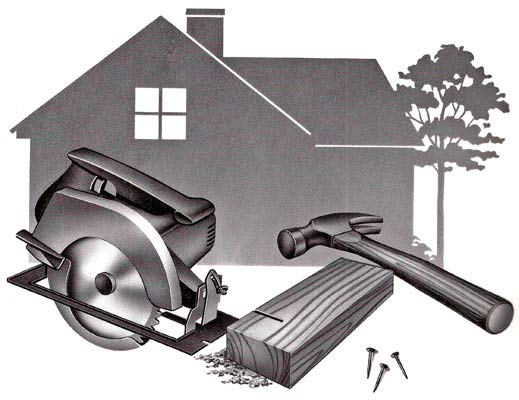
BLOG
Bankruptcy And Buying A House - Is It Smart To Buy A House After Bankruptcy?
Each year, millions of people file bankruptcy as a means of erasing their consumer debts. While this approach may relieve stress, a bankruptcy is damaging, and will hang over your head for the next ten years. Still, it is possible to overcome bankruptcy. The key is making smarter financial and credit decisions. With this said, some people choose to purchase a home after a bankruptcy. Here are a few pointers to consider when buying a home.
Each year, millions of people file bankruptcy as a means of erasing their consumer debts. While this approach may relieve stress, a bankruptcy is damaging, and will hang over your head for the next ten years. Still, it is possible to overcome bankruptcy. The key is making smarter financial and credit decisions. With this said, some people choose to purchase a home after a bankruptcy. Here are a few pointers to consider when buying a home.
Reasons to Delay the Buying Process after Bankruptcy
If you consult with mortgage or financial experts, they will likely discourage you from buying a home following a bankruptcy. After your bankruptcy is discharged, there is a black cloud that looms over your credit report.
When any prospective lender reviews your report, they will be notified of your recent or past bankruptcy. In some instances, this justifies an immediate denial. On the other hand, there are lenders eager to help you establish or rebuild your credit. Thus, they will approve a loan request. Nonetheless, the penalties are steep.
Higher mortgage rates can be anticipated when purchasing a home after bankruptcy, especially if you have not established other credit accounts. Mortgage lenders consider two factors: credit scores and credit reports.
Although a bankruptcy appears on your credit report, having a high credit score will increase your odds of getting a comparable rate. Unfortunately, if you buy immediately following a bankruptcy, you will not have the opportunity to boost your score.
Reasons to Buy a Home after Bankruptcy
Lenders will approve mortgage loan applications one day following a discharge. Therefore, it is possible to get a home after a bankruptcy. Buying a home is perfect for rebuilding credit. Moreover, it is the quickest way to increase your credit score.
After a bankruptcy, the average person has a credit score below 600. Good credit consist of credit scores 650 and above. Maintaining current mortgage payments will gradually increase your score. After two years of regular payments, you will have established a good payment history. Hence, you may qualify for a low rate refinancing, which may lower your mortgage payments.
Ready to search for your new home? Start here!
What is the Difference Between the Note and Deed of Trust
It's important to know the basics of real estate if you are going to own a home! Call me to register for a FREE Homebuyers Course! Laura Key 310.866.8422
A note, usually known as a promissory note, which is a written promise to repay a loan. Whereas, a trust deed is a document used to protect paying back of a loan that is being documented as a lien counter to the borrower's real estate. It is necessary to use a promissory note in order to avoid any breach in future. The various important terms of the loan should be specified in a promissory note including the loan amount, rate of interest (if any), and terms and conditions of repayment. It must be signed by the borrower with date in order to make it a valid document.
A deed of trust is a document that involves three parties generally known as the borrower, lender and a trustee. This document includes all the basic terms of the loan and should be signed by the borrower. It is documented as a lien contrary to the borrower's real estate. It is generally taken as a collateral document that works consecutively with the promissory note. In this document, the real property of the borrower is guaranteed as a lien to the lender. In case, the borrower is not able to pay back the loan amount, the lender may take the borrower's real property by way of the system of foreclosure.
A promissory note is a legal document that laid out all the essential things like how and when the borrower will pay back the money to a lender, the interest rate and the schedule of payment. It contains the undertaking of the borrower to repay the borrowed money within the specified time period. It is the personal obligation of the borrower to repay the money and has no relationship with an y real estate or other property.
Therefore, it can be understood that although, both the Note and Deed of Trust are an agreement for repayment of a loan, the tow are independent elements of a common mortgage loan. A deed offers the lien on the property in order to secure repayment of the loan. And, the note is completely a commitment between the borrower and the lender. The terms of this agreement can be modified at any period of time with the consent of both the parties. The deed of trust appears in the public property records, whereas, the note is completely a private document that never appears in the public records and therefore it is administratively very easy to make any modifications in the note.
*Please note that the information contained herein is for general informational purposes only. If you are currently involved in a real estate transaction, please direct your questions to your real estate professional, title officer or closing officer.
Homebuyers clueless about mortgages
Educating homebuyers is one of my favorite things to do! Ask me about my homebuyers class! Laura Key 310.866.8422
The housing market is heating up, yet many house hunters are not prepared to take on the biggest purchases of their lives.
When it comes to mortgages, homebuyers answered basic questions about terms, how to choose a lender and financing wrong nearly one-third of the time, according to an April survey of more than 1,000 current and prospective homeowners by real estate website Zillow.
Among the survey's findings, 31% of buyers don't think it's possible to get a mortgage for less than 5% down; 34% don't know what the term "annual percentage rate" (APR) means and one in four believe you must close with the lender that pre-approves your mortgage.
"All too often buyers focus on negotiating a lower home price and ignore the importance of finding the right loan," said Erin Lantz, director of mortgages for Zillow. "Buyers should always shop multiple lenders and compare rates and fees and read lender reviews in order to find the best loan for their situation."
One example: 34% of respondents believe lenders are required by law to charge the same fees to all clients for credit reports, appraisals and the like. That's wrong. Fees vary from bank to bank and can often be negotiated.
But it's hard to compare those deals if you don't understand what mortgage terms, like "annual percentage rate," mean. The APR factors into fees, upfront points, origination and underwriting fees and other costs that borrowers use to compare the actual cost of loans.
Such knowledge gaps can have long-term consequences. About 34% of first-time homebuyers think they need a down payment of at least 5% to make a home purchase, but loans insured by the Federal Housing Administration can require as little as 3.5% down.
And 24% of buyers believe the best mortgage deals are available through the banks where they currently have their savings and checking accounts, but often competing lenders can undercut those banks by large margins.
"If a homebuyer can lower their interest rate by even half a percentage point, they can not only increase their purchasing power, but save thousands of dollars over the life of the loan," said Lantz.
For every $100,000 borrowed, a half percentage point lower rate would reduce payments by $28 a month on a 30-year, fixed rate loan. That adds up to more than $10,000 over 30 years. Or borrowers could choose to add that $28 savings to each monthly payment. That would shorten the term of the mortgage from 30 years to just over 27 and save $6,500 in interest paid.
Another costly mistake: Many house hunters go shopping with financing in place because it enables them to act more quickly if they see a home they want. But 26% of buyers believe that once they're pre-approved, they're obligated to close the deal with those loans, according to the survey. In reality, there's no obligation. If buyers see better terms available they should take them.
Existing homeowners can also be guilty of ignorance. Some 20% of homeowners surveyed didn't know that underwater mortgages -- those in which borrowers owe more than their homes are worth -- can be refinanced into lower rate loans.
Finally, the survey found that nearly a third of homeowners are unaware that if they go through a foreclosure or short sale, they may not have to wait the full seven years it takes for their credit score to recover and they can buy a home again.
In reality, some homeowners who do short sales can obtain financing to buy another home in as little as two years.
The Consumer Financial Protection Bureau is hoping to make it easier for homebuyers with simplified mortgage forms that help them compare terms and costs and by creating new rules that will protect homeowners from getting into loans they can't afford.
Free home search here! Click the house to begin!
Source: By Les Christie @CNNMoney May 9, 2013
Does Moving Up Make Sense?
Don't get caught up in the madness of the market. Deciding to sell is a personal decision, take everything into account. I am here to assist! Laura Key 310.866.8422
These questions will help you decide whether you’re ready for a home that’s larger or in a more desirable location. If you answer yes to most of the questions, it’s a sign that you may be ready to move.
- Have you built substantial equity in your current home? Look at your annual mortgage statement or call your lender to find out. Usually, you don’t build up much equity in the first few years of your mortgage, as monthly payments are mostly interest, but if you’ve owned your home for five or more years, you may have significant, unrealized gains.
- Has your income or financial situation improved? If you’re making more money, you may be able to afford higher mortgage payments and cover the costs of moving.
- Have you outgrown your neighborhood? The neighborhood you pick for your first home might not be the same neighborhood you want to settle down in for good. For example, you may have realized that you’d like to be closer to your job or live in a better school district.
- Are there reasons why you can’t remodel or add on? Sometimes you can create a bigger home by adding a new room or building up. But if your property isn’t large enough, your municipality doesn’t allow it, or you’re simply not interested in remodeling, then moving to a bigger home may be your best option.
- Are you comfortable moving in the current housing market? If your market is hot, your home may sell quickly and for top dollar, but the home you buy also will be more expensive. If your market is slow, finding a buyer may take longer, but you’ll have more selection and better pricing as you seek your new home.
- Are interest rates attractive? A low rate not only helps you buy a larger home, but also makes it easier to find a buyer.
Are First-Time Buyers Being Shut Out?
Speaking from the trenches, I can honestly say it's hard to find buyers home right now. There are multiple offers and investors who offer in cash! Yet, it's not impossible! Call me today for more info and insight on what you may be facing as a buyer! Laura Key 310.866.8422
Across the country, first-time home buyers have been putting in offers on homes, but many of them keep losing out.
One working mother says she’s put in 30 offers on homes in the $100,000 range in the Atlanta area, bidding $2,500 to $3,000 above the asking price, but each time she’s been outbid. “We have to be on top of the game and be able to drop everything and check out a house or it will be gone,” says another couple in Alexandria, Va.
Tight housing inventories are playing a role. For example, in Boston home listings are down 57 percent and in Atlanta area home listings have dropped nearly 40 percent in the past year.
Also, “investors have been pushing home prices higher faster than expected,” Diana Olick reports for NBC. “But the higher prices get, the more investors may get out, because they won’t be able to find such great bargains any more. That in turn will let regular buyers back in, even if they do have to pay a little more to own.”
Source: “First-time Buyers Struggle as Home Prices Rise,” NBC (March 26, 2013)
Search SoCal homes for free from my Facebook page! www.Facebook.com/RealtyGoddess
Buying a House at Foreclosure Auction is Risky Business
You can buy a home at a significant discount at a foreclosure auction, but you’ll face a host of challenges. Don’t get burned; be solutions-ready.
Start by understanding the foreclosure auction rules for your area. State and local governments set their own rules for such factors as:
- Bidding process
- Amount of deposit
- Where the auction is held
- Whether the home owners can get their properties back after the sale
You can learn about the process in your area by talking to officials at your county tax department or to a REALTOR®.
Although foreclosure auctions follow local rules, there are some universal challenges you’ll face no matter where you shop for foreclosed properties. Here’s how to solve them.
Solutions to 6 common foreclosure auction challenges
1. Challenge: Getting reliable information about foreclosure sales. Many companies charge fees to send you lists of foreclosures that may not be current, or sell expensive foreclosure-buying “systems” that promise to teach you how to make millions in real estate.
Solution: Most foreclosure sales are still announced in local newspapers. And you can get accurate information about buying foreclosures from reliable book publishers:
Foreclosure Investing For Dummies (For Dummies, 2007)
Keys To Buying Foreclosed and Bargain Homes (Barron's Educational Series, 2008)
2. Challenge: You can’t get inside the property before the auction to inspect it forstructural problems and repairs. Many foreclosure auction properties are in bad shape because the owners couldn’t afford the upkeep. And sometimes angry home owners purposely damage the property to punish the foreclosing lender.
Solution: Walk around the home to check its exterior condition. If it’s vacant, look through the windows. Ask the neighbors what they know about the property. If it was a rental, check the inspection records on file with the local government.
You can safely assume there’s something wrong with any house sold at a foreclosure auction, so cover yourself by bidding no more than 70% of the home's market value.
3. Challenge: You need to figure out the market value of the house to prepare your bid. Some foreclosure auction announcements include information about the size of the original mortgage. That’s not how much the house is worth or even what the owners owe now. If the current owners bought at the top of the market, their mortgage may be more than the home is worth in today’s market and they could owe even more if there’s a second mortgage on the house.
Solution: Commission your real estate agent to do a broker’s price opinion (BPO) on the home you want to bid on. The BPO will show you comparable sales, telling you what similar, nearby homes that weren’t foreclosure sales have recently sold for.
Bid well below those comparable sales to leave yourself room to pay for repairs and unexpected problems. Ask the agency that runs the auction how to find winning bid amounts from recent auctions. Use that information to guide your current bid, too. A look at local tax and assessment records will tell you more about previous and current auction properties, like square footage and lot size.
4. Challenge: You don’t know if there are liens on the home. Some auctions don’t give you clean title to the property, meaning liens from the federal government or other entities may not be removed during the foreclosure auction process. You’d have to pay off those liens if you won the property.
Solution: Focus your efforts on two or three homes in desirable locations. To find out about any liens, pay a real estate attorney to run a title search on each property and issue a commitment to insure the title after purchase. Ask how the policy treats liens filed between the time of the search and the time you close.
A less-expensive option: Hire an independent title search professional called an abstracteror an online company. Both search options should be under $200, title insurance costs vary by state.
5. Challenge: You have to pay cash and pay it quickly. Most auctions require bidders to come up with the full purchase price in cash within 30 days.
Solution: Don’t count on getting a mortgage that fast. Look for other sources of cash that make financial sense for you.
- Take out a home equity line of credit or do a cash-out refinance.
- Tap retirement accounts, provided it makes sense for you from a tax perspective.
- Work with other investors to fund a partnership to invest in foreclosed homes.
6. Challenge: You’re in love with a house that you’re aware is headed to foreclosure, but you’re afraid to bid on it at the foreclosure auction because you know nothing about the process.
Solution #1: Contact the owners and offer to purchase the home as a short sale. That’s where the bank agrees to let the owners sell for less than what they owe on the mortgage.
Solution #2: You may be able to buy the house after the foreclosure sale. Foreclosure sales are run by a government agency (often the sheriff), which collects the money from the highest bidder and gives it to the bank to pay off the mortgage.
Banks will often bid at the sale to make sure someone doesn’t pay less than the house is worth (translation: not giving the bank enough money to satisfy the mortgage).
If the bank is the high bidder, it’ll take title to the house and put it up for sale. Then, buying the home is just like buying any other house. You can buy an owner’s title insurance policy so you know the house is free of liens; you can get a home inspection to check for needed repairs; and you’ll have plenty of time to line up your financing.
A real estate agent can alert you the day the bank puts the home on the market, so you can submit your purchase offer.
Since the bank pays the real estate agent’s fees, you likely won’t pay more than you'd have bid at the foreclosure auction to outbid the bank, and you’ll avoid most of the risks and unknowns of buying at the auction.
Ready to purchase your home! Start by taking one of my Free Home Buyer Seminars! Your will learn everything you need to know from Lending to Escrow! Call to schedule today! Laura Key 310.866.8422
Source: houselogic.com - Marcia Jedd, who covers a range of home and real estate issues, dreams of stumbling upon a foreclosure sale where a vacation lake cabin in northern Minnesota is being sold free and clear at a deep discount. Her bylines include many local and national publications, including FrontDoor.com, HGTVPro.com, Kitchen & Bath Ideas, and Professional Builder.
Loans for Fixer Uppers
Low housing inventory has resulted in a lack of move-in ready homes available for sale. Many buyers, especially first time buyers, tend to overlook properties in need of extensive repairs, but a federally backed lending program enables buyers to roll the cost of necessary repairs into their mortgage, which can sometimes yield a quick return on investment.
Making sense of the story
- The Federal Housing Administration’s 203(k) program provides for loans that cover purchase and renovation costs for single-family homes and multifamilies with up to four units. The total loan amount is based on the property’s appraised value once the repairs are completed. The down payment requirement is 3.5 percent.
- FHA 203(k) loans are not available to investors – borrowers must live in the properties. But some borrowers have used a 203(k) loan to buy and renovate a multifamily property, live in the property for a year or so, refinance into a conventional loan, and then sell the rehabbed property.
- The loans are more expensive than conventional financing, because the interest rates are slightly higher and private mortgage insurance is required.
- Additionally, borrowers must pay a building consultant, who writes the initial estimate of the cost of planned repairs. Fees range from $400 to $1,000, depending on the extent of the repairs. The consultant also ensures that the repairs will bring the house up to government health and safety standards.
- The loans do not cover the addition of luxury items, such as a pool. But allowances are made toward the cost of repairing or removing a pool, as well as for the addition of solar panels.
- Renovations must be made within six months after closing. The contractor is paid in intervals after periodic inspections of how the work is progressing. Borrowers should make sure they hire experienced contractors who understand that they won’t be paid upfront and must adhere to strict timelines.
For more information contact Laura Key, Real Estate Agent at Laura.A.Key@gmail.com
www.KeyCaliforniaHomes.com
Source: New York Times By LISA PREVOST Published: January 17, 2013
Avoiding Loan Modification Hoaxes
Please make sure you speak to someone who can really help you!
Homeowners wary of being taken in by bogus “loan modification specialists” should not assume that a law office is the most reliable way to work with their lender. Consumer advocates say a growing number of fraudulent modification services involve lawyers, or people who say they are lawyers.
Making sense of the story
- Increasingly, lawyers are lending “their names, their offices, their credentials” to fraudulent operations that vaunt superior skills in obtaining loan modifications, according to a senior counselor at the Lawyers’ Committee for Civil Rights Under Law in Washington.
- While Federal Trade Commission rules generally prohibit demanding upfront fees for mortgage relief services, there is a narrow exception for lawyers.
- Under the rules, a lawyer may charge clients in advance for assistance if the service is part of their general practice of law, and not outside of that practice.
- Certainly, many lawyers provide legitimate foreclosure-avoidance services, but borrowers should know that when going to a lawyer whose sole business is loan modifications, that is a red flag.
- As more homeowners become aware of these tactics, some operations are changing their practices. Instead of selling loan modification services, they are advertising so-called loan workouts and forensic loan audits. Some are even posing as nonprofit groups.
- The Homeownership Preservation Foundation and the Lawyers’ Committee both belong to a coalition of public and private agencies that maintain a national database of loan-modification complaints. Since March 2010, some 28,000 homeowners have reported potential fraud. Their reported monetary losses total around $66 million.
- (source: New York Times)







